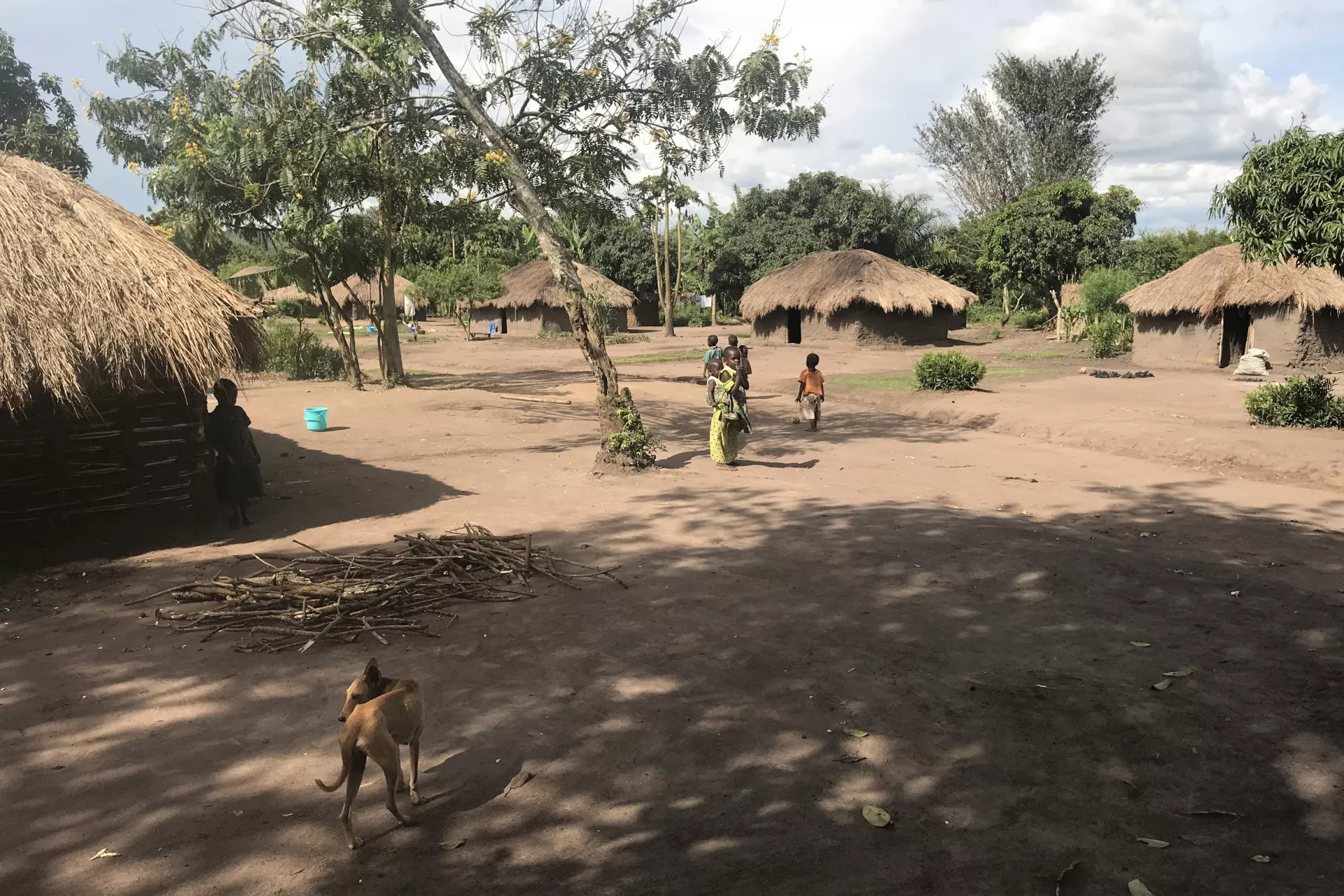A model village
Aga residents are mobilized to provide a healthy and clean environment for their children.

- Available in:
- Français
- English
“Our village became clean”, said proudly one of Aga residents, a village in the Northeast of Ituri province in the Democratic Republic of Congo (DRC). “ Previously, our village was very dirty and our children suffered from the diarrhea”, said Esperance Tabu, adding that her eight children were drinking water from the swamps and the nearby river.
Reality was the same for the thousand inhabitants of the village, since there were no latrines, showers, nor drinking water. Concerned about the health and survival of their children, Aga residents decided to participate in the Healthy School and Village program, set up by the Congolese Government with the support of UNICEF.

Since a water source was developed, waterborne diseases have significantly decreased in Aga. “Even when we travel to distant villages, we take water from our source”, says Maman Tabu - as other women from her village affectionately call her.
In order for Aga to be recognized as a sanitized village, the entire population has to be involved and mobilized. “Everyday, I remind mothers of the importance of respecting hygiene and sanitation measures”, said Maman Tabu who is a member of the Healthy Village Committee. To set the example, the mother sweeps her yard every morning, weeds around her house and makes sure that she has enough water and ashes for hand washing.

Thanks to the mobilization of all Aga inhabitants, the village is now cleaner and has drinking water, latrines, and hand washing units. “Cleanliness protects us from illness”, explains Lobikana Matotina, mother of 5 children. To ensure that her children grow up healthy, the mother built a hand washing station with salvaged material. “We make sure that there is no shortage of water and ashes for hand washing”, continues Lobikana Matotina.
“We hardly register any more cases of illness”, concludes Maman Tabu who mobilizes daily so that her village maintains its status.
Across Ituri province, UNICEF has supported 117 healthy villages with financial support from the Swedish International Development Cooperation Agency (SIDA). More than 10.000 people have committed to good water, hygiene, and sanitation practices.





